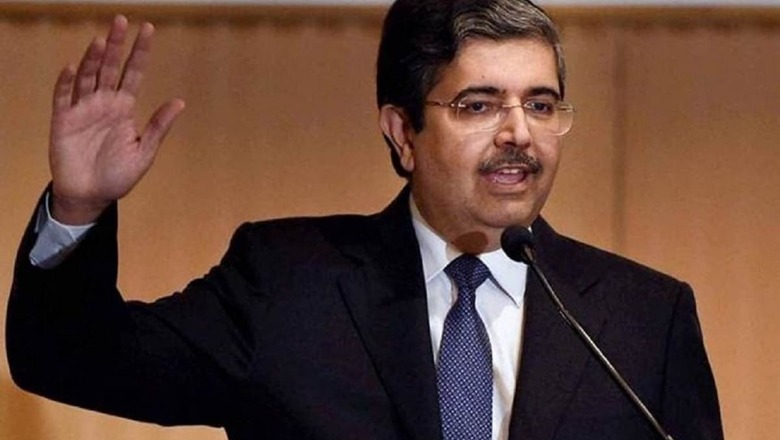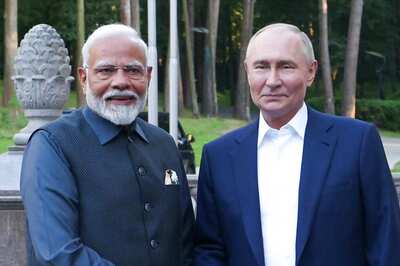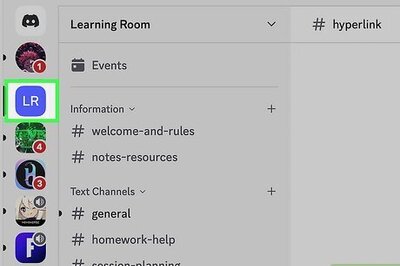
views
Private investment, which has been muted for a long time, will start trickling in once the overall capacity utilisation in the system goes beyond 75 per cent that, in turn, will help unleash ‘animal spirits’, CII President Uday Kotak said on Wednesday. The COVID-19 pandemic gave a shock to capacity utilisation and as companies go to capacity utilisation above 75 per cent, they will start looking at expansion and making investments, Kotak told PTI in an interview.
“The second and the third points for getting private investment…a stable interest rate, and a stable tax regime. Additionally, if capacity utilisation goes up and we keep up stability on interest rates and taxation, and also policies of entry and exit from different sectors, we can actually create a positive environment for getting people”s animal spirits back,” he said.
The term ”animal spirits” was coined by celebrated economist John Maynard Keynes to refer to investors” confidence in taking action in terms of investment.
To encourage fresh investment from the private sector, the government in September 2019 cut corporate tax to one of the lowest in the world. In the biggest reduction in 28 years, the government slashed corporate tax rates up to 10 percentage points as it looked to pull the economy out of a six-year-low growth with a Rs 1.45-lakh crore tax break.
Base corporate tax for existing companies has been reduced to 22 per cent from 30 per cent; and from 25 per cent to 15 per cent for new manufacturing firms incorporated after October 1, 2019, and starting operations before March 31, 2023.
Most of the domestic companies have been shying away from making investments but rather busy in de-leveraging their books for the past few years. As a result, the responsibility of capital formation has largely fallen on the government”s and state-owned firms” shoulders. Even during the pandemic period, PSUs have undertaken capital expenditure (capex).
Praising the RBI for its various steps, Kotak, who is also the managing director of Kotak Mahindra Bank, said the central bank has managed the monetary policy wonderfully in 2020 by ensuring adequate liquidity and maintained stability in the financial sector.
Asked if it is the right time to announce package to stimulate demand, he said, “we want to be careful about demand-side stimulus we use for ensuring that we get the growth back”.
“At the same time, we have to be cautious about the levels of inflation which may come in the economy,” he added.
He also said that there should be graded path towards reduction of fiscal deficit, which is expected to be around 7 per cent of gross domestic product.
“Let the benefit of some fiscal stimulus continue even into next year, and do a graded reduction of the fiscal deficit to ensure that the economy continues to get the growth momentum.
“On the other side, how do you ensure that inflation doesn’t happen…we are already at the risk of commodity inflation,” he said.
One of the important challenge for the world is the bounce back of the commodity cycle which has potential of increasing inflation, he said adding that as growth comes back, there is a need to take care of inflationary pressure.
As inflation picks up, there is a need to have a stable interest rate regime for the calendar year 2021, he added.
Speaking about the financial sector, he said the COVID-19 impact is expected to exacerbate the non-performing assets (NPA) problem, affecting the credit cycle.
To address this issue, he suggested facilitating multiple bad banks, by allowing alternative investment funds (AIFs) to buy bad loans.
Create government-owned, professionally managed development finance institutions (DFIs) to finance key sectors of the economy, he said. NABARD and SIDBI have worked in the respective sectors, and the DFI for financing infrastructure will bring transformation, Kotak added.
Read all the Latest News, Breaking News and Coronavirus News here



















Comments
0 comment